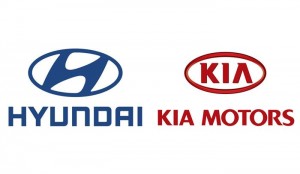 Top Class Action Lawsuits
Top Class Action Lawsuits
Whole Foods wholly implicated? …in a potential data breach class action lawsuit alleging that it wasn’t paying as much attention as it should have in safeguarding its customers’ personal info. In other words, negligence. According to the complaint, the hack took place in September and resulted in consumers’ personal information being stolen.
According to the Whole Foods lawsuit, filed by named plaintiff Patricia Banus, the data hack affected Whole Foods taprooms and restaurants. Banus alleges in the lawsuit that she paid for goods at a Whole Foods Market Group Inc. taproom four days before the September 28 announcement of the breach. As a result, she asserts she must now cancel her card, given that her personally identifiable information may have been compromised through the breach of the taproom’s point-of-sale system.
“Plaintiff, individually and on behalf of those similarly situated, brings this action to challenge the actions on Whole Foods in the protection and safekeeping of the plaintiff’s and class members’ personal information,” the complaint states. “Whole Foods’ failures to safeguard the consumer PII has caused plaintiff and class members damage.”
According to the complaint, Whole Foods had a duty under the Fair Credit Reporting Act to safeguard customers’ personally identifiable information from being disclosed to third parties. As part of those responsibilities, Whole Foods should have been following security protocols from Mastercard and VISA in the processing of card transactions. The breach may have resulted from a failure by Whole Foods to comply with these security standards, the complaint states.
Further, Whole Foods allegedly violated Ohio consumer protection laws and if consumers had known that their personal data was not properly protected, they would have potentially have shopped somewhere else, the complaint states.
The plaintiff claims there is a good probability that the full extent of the identity theft and fraud that could result from the Whlole Foods data breach has yet to be disclosed and consumers’ information might be available to purchase on the dark web.
The proposed class is made up of all US consumers whose personal data was released during the September breach. Banus also seeks to represent an Ohio subclass. The size of the proposed class is unclear with the company reporting that 117 venues were affected.
The case is Banus v. Whole Foods Market Group Inc., case number 1:17-cv-02132, in the U.S. District Court for the Northern District of Ohio.
Top Settlements
Wright to pay for what’s wrong… Wright Medical Technologies wants out and they’re willing to pay for it. This week, the company announced it will pay $340 million to end about 2,000 claims resulting from alleged failure of its hip implant devices. This settlement will augment the Wright defective hip implant settlement reached in 2016 by $90 million, according to the defendant’s legal counsel.
The lawsuits are consolidated in multidistrict product liability litigation (MDL) in the Northern District of Georgia or in Los Angeles Superior Court in judicial counsel coordinated proceedings, California’s equivalent to a federal MDL.
The first bellwether case was heard in 2015 and resulted in an $11 million jury verdict for Robyn Christiansen, a 73-year-old Salt Lake City ski instructor who had suffered a catastrophic failure of her Wright-manufactured hip implant. The award was eventually reduced by $9 million.
According to the terms reported for the 2016 settlements, each claimant with a Conserve Cup device received about $170,000. Each claimant implanted with either a Dynasty or Lineage replacement hip that had failed received $120,000.
The Wright hip implant metal-on-metal design was responsible for the device failures, because it caused metal wear, according to court records. This resulted in the shedding of metallic debris into the surrounding tissue, leading to a condition known as metallosis, which inflamed and poisoned tissue, dissolved bone that anchored the implant and ultimately caused the implant to fail, court records state.
According to attorneys for the plaintiffs, this new settlement agreement will include hundreds of cases excluded in the first agreement because Wright Technology, the medical device company’s new Chinese owners, and Wright’s insurance carrier did not have sufficient funds to cover all the claims.
The new cases include those with hip implants that failed after the statute of limitations on suing had expired, cases filed after the original settlement was consummated, and suits by plaintiffs who reconsidered after initially deciding not to accept a settlement offer last year, the attorneys said.
Those plaintiffs who refuse to settle as part of the $340 million agreement, will be dismissed and remanded to their states of origin, according to the attorneys.
Burger King BOGO Rewind… in the form of a settlement that could see consumers get $2 gift cards. Yup- it’s part of the terms of the settlement meant to end the pending consumer fraud class action lawsuit. Under those terms consumers who ordered Croissan’wiches with a coupon, will receive $2 gift cards. Well, shut the front door!
According to the lawsuit, some customers who ordered their sandwiches without eggs, cheese or meat may have been overcharged and those customers who presented a buy-one-get-one-free coupon paid a higher price for the sandwich.
The lawsuit was filed by Burger King customer Koleta Anderson, in Maryland federal court on May 2017, on behalf of aggrieved breakfast patrons who alleged they were overcharged when using a coupon. This resulted in Burger King conducting its own investigation into the allegations.
According to court documents, Burger King Corp did in fact find that customers who used a buy-one-get-one-free coupon to order two of the breakfast sandwiches that were modified to exclude eggs, cheese or meat may have been charged the cost of a regular Croissan’wich instead of the lower cost of the pastry without the eggs, cheese or meat.
The faulty point-of-sale programs that caused the overcharges have been updated, Burger King said. Further, the restaurant chain has agreed to give $5 to customers who have a receipt showing their overcharge on modified BOGO Croissan’wiches, and $2 gift cards to customers who meet certain other terms.
The proposed settlement also includes a permanent injunction barring the fast-food chain from repeating the mistake.
Anderson will receive a service award of $500 for assisting in the case. That’s a lot of sandwiches…
The case is Anderson v. Burger King Corp., case number 8:17-cv-01204, in the U.S. District Court for the District of Maryland.
So folks – on that happy note – this week’s a wrap –see you at the bar!!

 Top Class Action Lawsuits
Top Class Action Lawsuits Top Class Action Lawsuits
Top Class Action Lawsuits